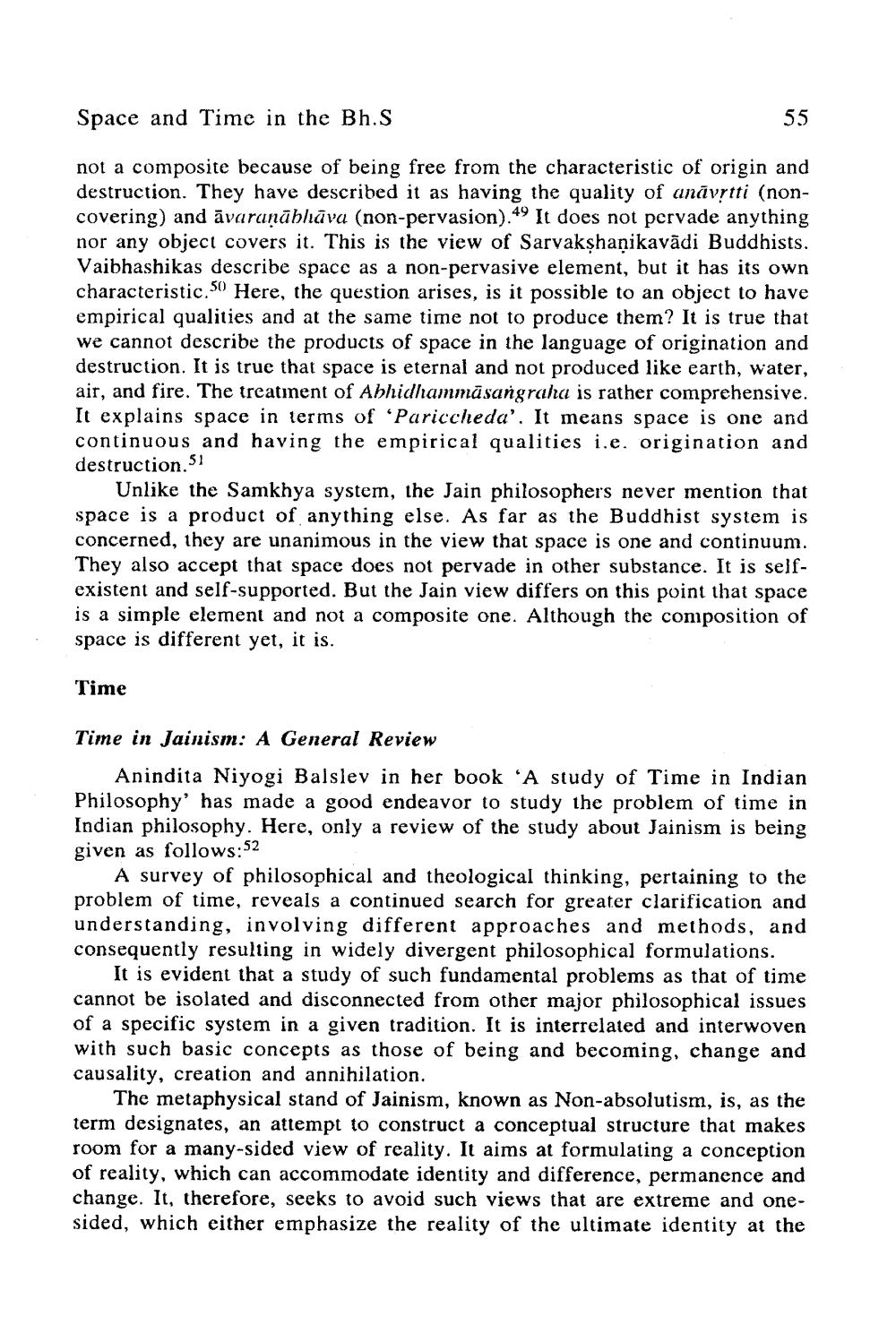________________
Space and Time in the Bh.S
55
not a composite because of being free from the characteristic of origin and destruction. They have described it as having the quality of anāvrtti (noncovering) and āvaranābhāva (non-pervasion).49 It does not pervade anything nor any object covers it. This is the view of Sarvakshanikavādi Buddhists. Vaibhashikas describe space as a non-pervasive element, but it has its own characteristic. 50 Here, the question arises, is it possible to an object to have empirical qualities and at the same time not to produce them? It is true that we cannot describe the products of space in the language of origination and destruction. It is true that space is eternal and not produced like earth, water, air, and fire. The treatment of Abhidhammāsangraha is rather comprehensive. It explains space in terms of ‘Pariccheda'. It means space is one and continuous and having the empirical qualities i.e. origination and destruction.51
Unlike the Samkhya system, the Jain philosophers never mention that space is a product of anything else. As far as the Buddhist system is concerned, they are unanimous in the view that space is one and continuum. They also accept that space does not pervade in other substance. It is selfexistent and self-supported. But the Jain view differs on this point that space is a simple element and not a composite one. Although the composition of space is different yet, it is.
Time
Time in Jainism: A General Review
Anindita Niyogi Balslev in her book 'A study of Time in Indian Philosophy' has made a good endeavor to study the problem of time in Indian philosophy. Here, only a review of the study about Jainism is being given as follows:52
A survey of philosophical and theological thinking, pertaining to the problem of time, reveals a continued search for greater clarification and understanding, involving different approaches and methods, and consequently resulting in widely divergent philosophical formulations.
It is evident that a study of such fundamental problems as that of time cannot be isolated and disconnected from other major philosophical issues of a specific system in a given tradition. It is interrelated and interwoven with such basic concepts as those of being and becoming, change and causality, creation and annihilation.
The metaphysical stand of Jainism, known as Non-absolutism, is, as the term designates, an attempt to construct a conceptual structure that makes room for a many-sided view of reality. It aims at formulating a conception of reality, which can accommodate identity and difference, permanence and change. It, therefore, seeks to avoid such views that are extreme and onesided, which either emphasize the reality of the ultimate identity at the




